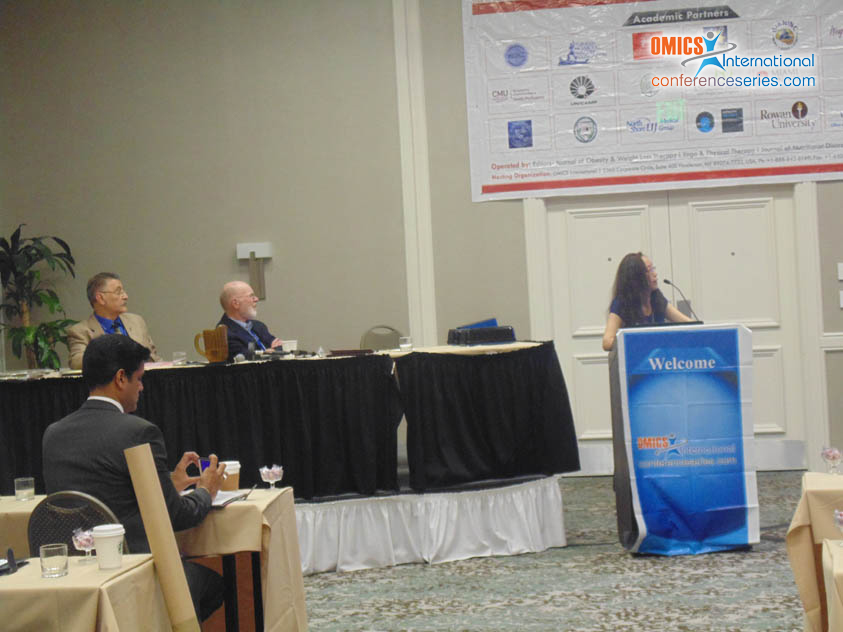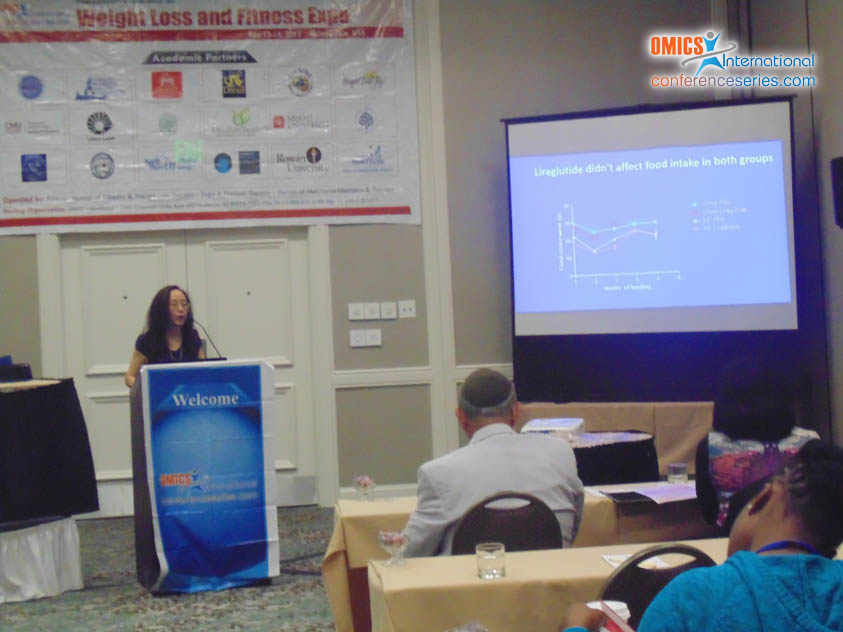
Lixin Li
University of Central Michigan, USA
Title: Liraglutide protects high fat high sucrose diet induced obesity through elevation of energy expenditure
Biography
Biography: Lixin Li
Abstract
Obesity is a risk factor for type 2 diabetes, coronary heart disease, and stroke. Glucagon like peptide -1 (GLP-1) is synthesized by the L cells of ileal mucosa and is released after nutrients ingestion. GLP-1 potentiates glucose-induced insulin secretion. Liraglutide, a full agonist of the GLP-1 receptor, has long-lasting. Although research has found the protective effect of GLP-1 agonist on weight gain in type 2 diabetes, the mechanisms is not clear. Brown adipose tissue plays a major role in the control of energy balance in rodents, whether GLP-1 activate the brown fat activity or differentiation has not been studied. In this study, we examine the potential protective effect of liraglutide on high fat high sucrose (HFHS) diet induced obesity. Four groups of mice were fed with regular chow or HFHS diet, liraglutide (100µg /kg) or vehicle (PBS) were injected daily for five weeks. The mice body weight increased by 12% in chow diet group and increased by 32.9% in HFHS diet group after 5 weeks. Liraglutide significantly attenuate the weight gain in both chow diet (increased by 8%) and HFHS diet (increased by 16% ), which is associated with significantly reduced epididymal fat mass. Reduce food intake was observed in liraglutide treated mice comparing with control groups, however, liraglutide fail to suppress food consumption after three weeks’ treatment. Liraglutide increased the mRNA level of brown fat specific genes including peroxisome proliferator-activated receptor gamma PPAR-ϒ (PPAR-γ), uncoupling protein-1 (UCP-1), and cell death activator-a (Cidea) in skeletal muscle tissue from HFHS diet fed mice. These data indicate that protective effects of liraglutide on diet induced obesity may act through multiple mechanisms, including suppressing appetite, and increasing energy expenditure. Liraglutide is a potential therapy for obesity and obesity related metabolic disorders






